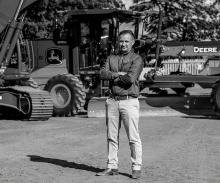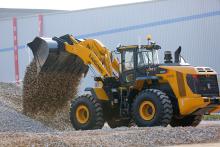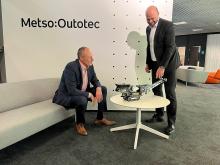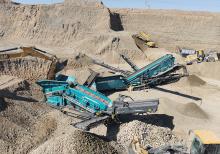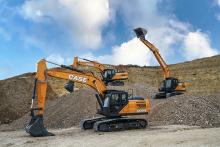
Established in 2003, Kemach has over the years been the force behind the JCB name in South Africa and neighbouring countries such as Lesotho and Eswatini (previously Swaziland). However, following the end of the JCB dealership agreement in 2021, Kemach has adopted a multi-brand strategy that has seen the company entering into distributorship agreements with several premium equipment brands.
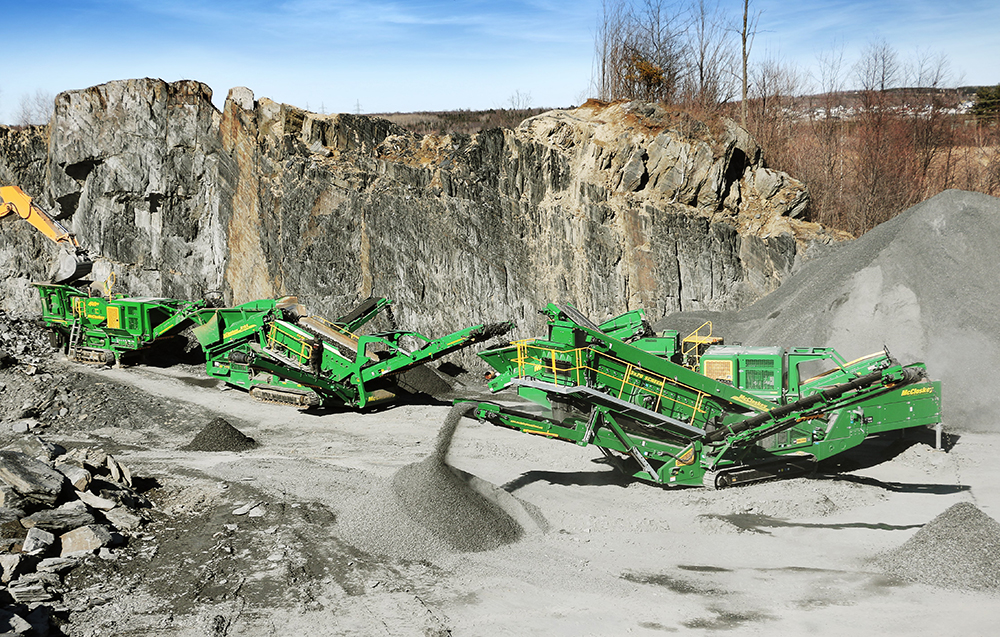
The business realignment strategy was put in motion in March 2020 when, in partnership with Anhui HELI, Kemach introduced its Kemach Forklift range, giving the company a footprint in the booming materials-handling market.
The distributorship agreement with McCloskey International in October 2020 was a further coup for Kemach in its quest to expand its products and services in the mining, aggregates, construction and demolition, recycling and infrastructure markets.
In July 2021, Kemach was appointed as the new supplier of the full range of BULL backhoe loaders in South Africa, Lesotho and Eswatini. This was followed by yet another strategic distributorship agreement with BOMAG GmbH in August 2021, allowing Kemach to market and support the full range of BOMAG’s heavy and light machines in South Africa, Lesotho and Eswatini.
During the same month, Kemach Equipment signed a distributorship agreement to sell and support the full range of Liebherr earthmoving equipment in South Africa. The range includes excavators (20 – 100t), wheeled loaders (10.4 – 25t), bulldozers (20 – 73t) and a line of telehandlers.
The multi-brand strategy, explains Kemach Equipment CEO Les Lothian, is in line with the ever-changing needs of customers. With the evolution and transformation of project scopes, he says, the introduction of strong, high-performance products and cost-centric services is needed now more than ever.
“We felt that by being linked to a single brand we were limited to a certain extent. There are several sectors of the South African economy which we couldn’t participate in. With a single brand, we were pretty much limited to the construction sector, and missed out on opportunities in the materials-handling, mining and quarrying sectors, among others” explains Lothian.
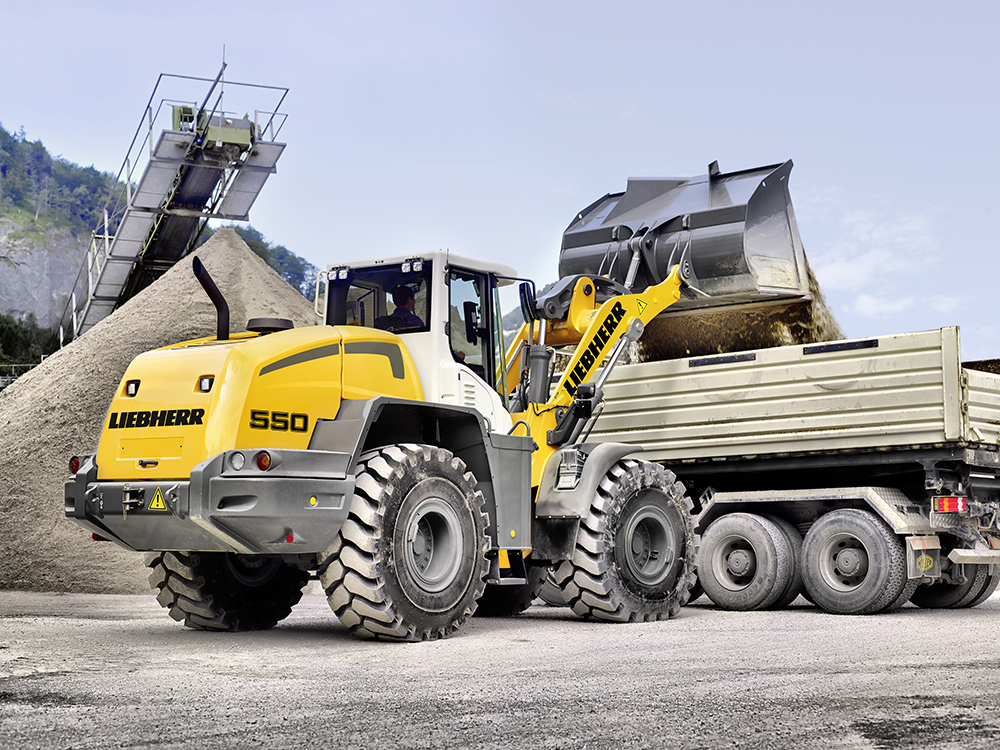
It is a common norm that businesses should never put all their eggs in one basket; this is the central thesis on which the concept of diversification lies. Given the importance of a well-diversified portfolio in any market condition, Lothian maintains that the multi-brand approach places the business in a far more balanced position. In an event that one of the markets struggles, for example, when construction is down, the business can tap into other markets such as mining and materials handling to remain on a level footing.
“We are building our business around five different pillars – Kemach Forklifts (materials handling), McCloskey (crushing & screening), BULL backhoe loaders (construction), BOMAG (infrastructure development) and Liebherr, which gives us a footprint in not only construction, but also the logistical handling of mining materials. All of these segments leverage each other, giving our business the much-needed balance,” says Lothian.
Apart from diversification into different sectors of the economy, the multi-brand strategy also allows Kemach Equipment to offer a total solution to its customers.
As customers chase for the convenience that comes with dealing with a single provider for their different needs, the equipment industry has not only seen an accelerating trend towards consolidation within the supplier community, but also an expansion of the range of products and services offered under one roof. This has created true one-stop shops that are able to service a wide range of customers’ needs from one stable.
“In a crushing and screening application, for example, we are now able to offer a crusher and a matching excavator to load it. At the backend, the customer may need a wheeled loader to clean up whatever they are handling and to load material onto trucks. Previously, we were not able to offer that full value chain, but now we can,” he says. “We have also been very careful in selecting our OEM partners. All the products in our stable complement each other, are of the highest quality and offer true value for money”
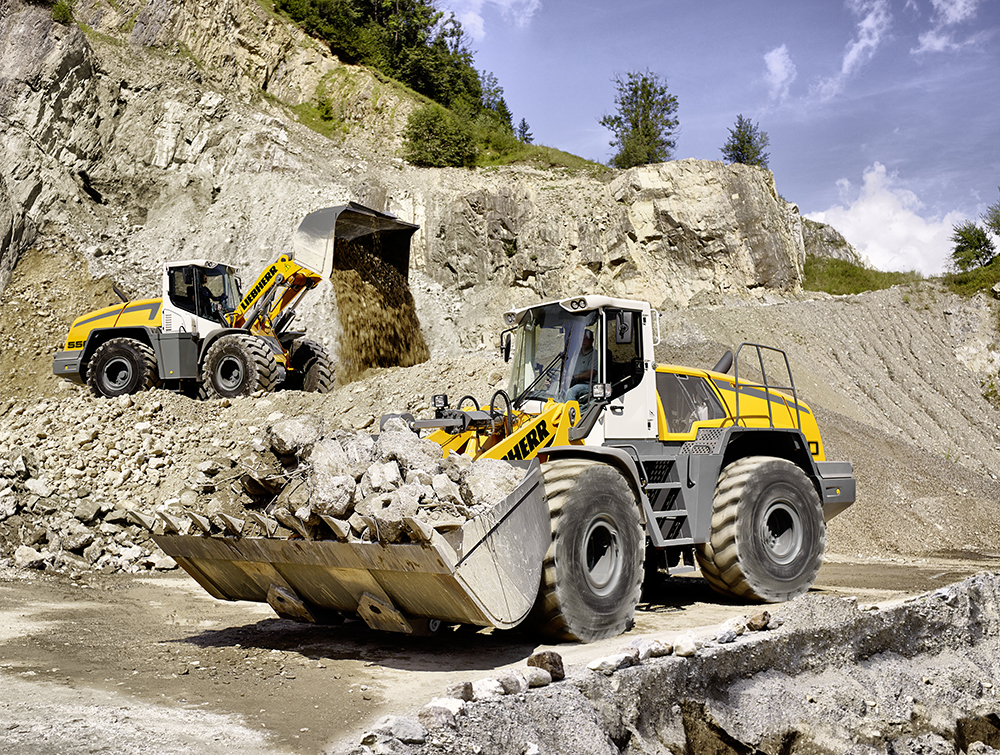
The two brands that speak directly to the aggregates sector are McCloskey and Liebherr. Commenting on the McCloskey offering, Lothian says, “We chose McCloskey because of the brand’s stature in the South African and the global market at large. Being part of Metso Outotec, we felt that the brand was the right fit for our needs,” he says.
Since October 2020, Kemach has recorded remarkable success with the McCloskey offering, averaging a machine a month. The machine population is spread across quarrying, mining and recycling applications.
“Adding McCloskey to our range of leading brands enhances our ability to satisfy the growing needs of our customers, while also creating the opportunity to strengthen our position of being a total solutions provider to the markets we participate in,” he says. “With sustained and strong growth in the population and the required infrastructure, we anticipate equally strong growth in the aggregates sector. Bringing McCloskey products to the market at this key time benefits our company and our customers.”
Having previously been a construction-focused equipment supplier, the Liebherr earthmoving range gives Kemach Equipment a foothold into new sectors such as mining and quarrying.
Liebherr and Kemach are two household names in the South African earthmoving equipment industry. The two companies, says Lothian, will leverage each other’s strengths to provide customers in South Africa with a high-end product that is backed by unparalleled aftersales support.
“With over 70 years of trusted machinery development and building across more than 10 industries, Liebherr products are a vital addition to the Kemach Equipment family and with this partnership, we can continue with our promise to be the best business decision for our customers,” says Lothian.
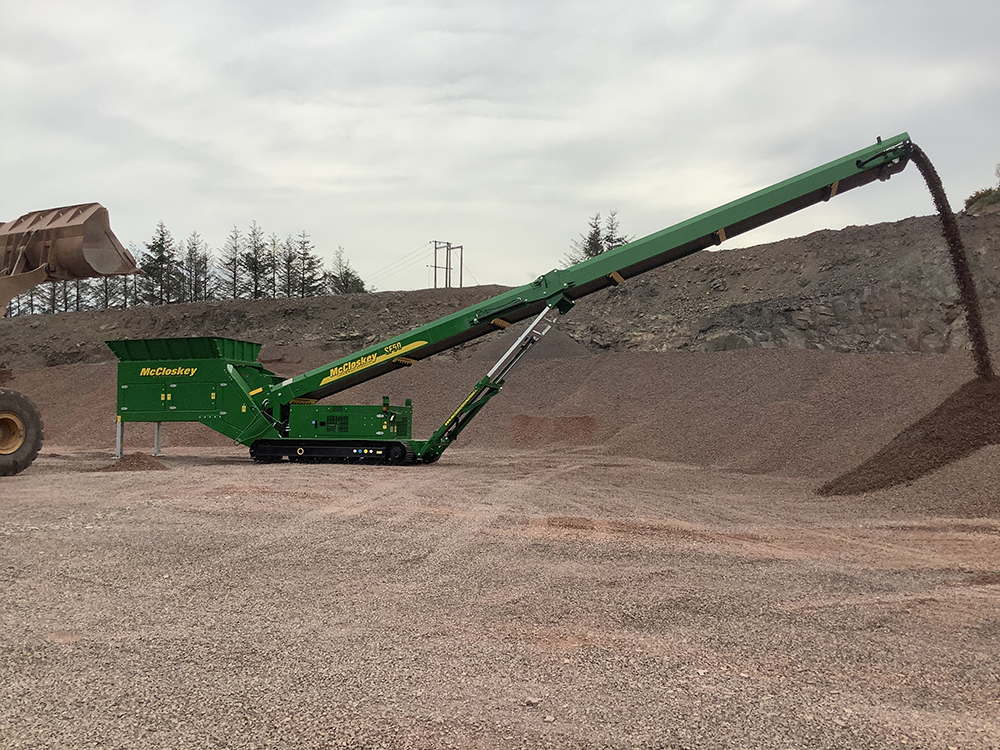
On the construction side of things, Lothian says Liebherr offers a strong offering in the 20 – 30 t excavator segment, which constitutes about 60% of the excavator market in South Africa.
The larger excavator range, together with the extensive wheeled loader offering, also allows the company to compete at the larger end of the scale, complementing the McCloskey offering in the crushing and screening space. Lothian is also excited about the prospect of having a dozer range in the Kemach stable for the first time.
“We have never had an experience with dozers. It’s a small segment of the market, but the value is substantial. The local market has a lot of confidence in the Liebherr product line and we are excited about the prospects of growth in that market segment,” he says.
“This is going to open new doors for us,” he adds. “Our experienced sales team is now equipped to provide current and future customers with a 360-degree solution across applications. If we can package this with extended warranties and service plans, we will be able to create absolute peace of mind for our customers.”
Commenting on the strategy, Lothian says one of the concerns around the Liebherr product in the local market has always been the price. However, the two companies are working together to offer a price-competitive product to the market. Leveraging a strong support footprint at the back-end of the market, Lothian believes that the Liebherr venture will be a major success for the company.
“We have taken delivery of a few machines from Liebherr-Africa. We also have a large fleet on order, and when the product hits the ground, there will be substantial changes in the way we are going to market it.”
Key to success, adds Lothian, will be the company’s strong branch footprint across all key regions of South Africa and neighbouring countries. Sales, support and service are delivered through Kemach’s extensive southern African footprint, including its national office based in Gauteng, and branches situated in 11 locations throughout South Africa.
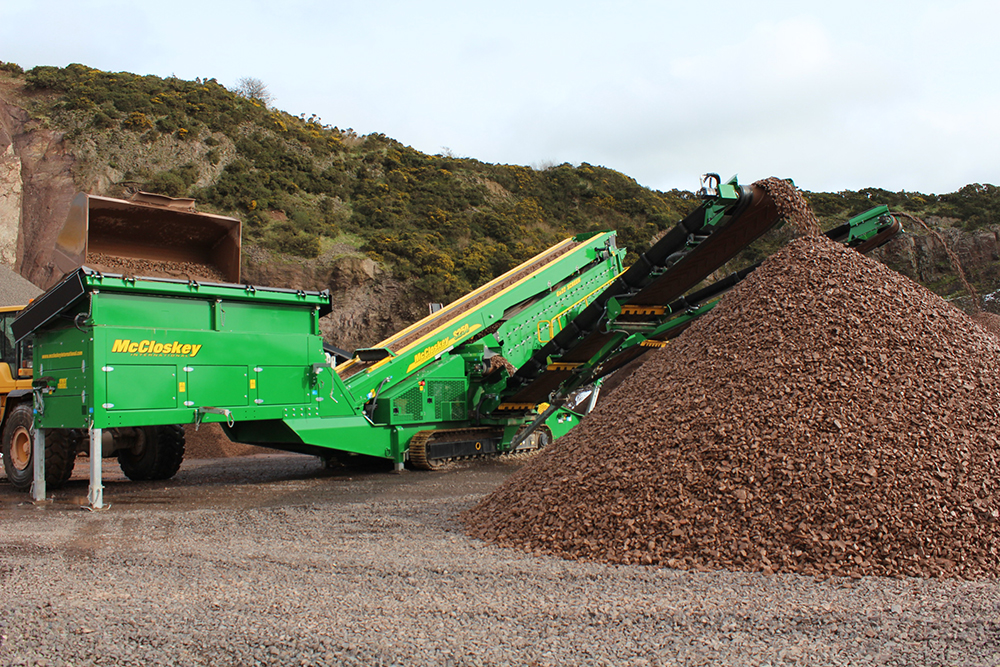
To ensure seamless operations throughout its territory, the company has a network of fully-fledged branches in Jet Park, Ethekwini (Durban), East London, Gqeberha (Port Elizabeth), George, Cape Town, Bloemfontein and Nelspruit. This is complemented by a network of sub-dealers strategically positioned in Schweizer Reneke and Polokwane in South Africa, as well as Windhoek (Namibia) and Swaziland. Kemach also owns and operates its own branch in Lesotho.
The company is also currently re-establishing branches in the mining towns of Rustenburg (North West Province), Middelburg (Mpumalanga Province) and Kathu (Northern Cape Province) in South Africa.
Looking ahead, Lothian is excited about the prospects of growth for the company across the infrastructure value chain. Given that South Africa’s economic recovery plans centre on infrastructure development, there is sentiment that many infrastructure projects will come to market in the next few years.
The South African government unveiled 62 projects at the Sustainable Infrastructure Development Symposium South Africa in 2020. While the pace of progress has been slow, approximately 33% of these projects are in construction and some have already been completed, with another 20% at various stages of preparation and feasibility.
“As a total solutions provider, we are in a better position to add value to our customers’ businesses. We are offering a product range that gives our customers value – lower cost per tonne, long life and high resale value. All of these parameters build value for the customer. Given the tough nature of doing business in the current environment, we believe we are geared to help customers make the best business decision,” concludes Lothian. AB

